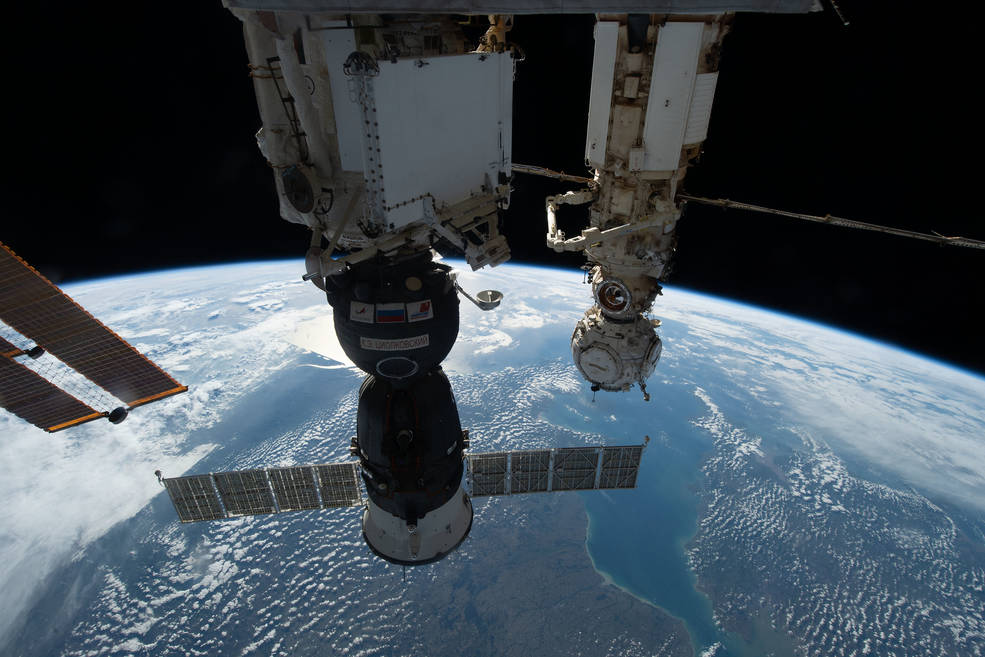Science News Roundup: Russia to rescue ISS crew on backup rocket after capsule leak; Last year tied as world's fifth-warmest on record, U.S. scientists say and more
The leak came from a tiny puncture - less than 1 millimetre wide - on the external cooling system of the Soyuz MS-22 capsule, one of two return capsules docked to the ISS that can bring crew members home. Last year tied as world's fifth-warmest on record, U.S. scientists say Last year was the world's joint fifth-warmest on record and the last nine years were the nine warmest since pre-industrial times, putting the 2015 Paris Agreement's goal to limit global warming to 1.5C in serious jeopardy, U.S. scientists said on Thursday.

Following is a summary of current science news briefs.
Russia to rescue ISS crew on backup rocket after capsule leak
Russia said on Wednesday it would launch another Soyuz spacecraft next month to bring home two cosmonauts and a U.S. astronaut from the International Space Station after their original capsule was struck by a micrometeoroid and started leaking last month. The leak came from a tiny puncture - less than 1 millimetre wide - on the external cooling system of the Soyuz MS-22 capsule, one of two return capsules docked to the ISS that can bring crew members home.
Last year tied as world's fifth-warmest on record, U.S. scientists say
Last year was the world's joint fifth-warmest on record and the last nine years were the nine warmest since pre-industrial times, putting the 2015 Paris Agreement's goal to limit global warming to 1.5C in serious jeopardy, U.S. scientists said on Thursday. Last year tied with 2015 as the fifth-warmest year since record-keeping began in 1880, NASA said. That was despite the presence of the La Nina weather pattern in the Pacific Ocean, which generally lowers global temperatures slightly.
Astronomers discover Milky Way galaxy's most-distant stars
Astronomers have detected in the stellar halo that represents the Milky Way's outer limits a group of stars more distant from Earth than any known within our own galaxy - almost halfway to a neighboring galaxy. The researchers said these 208 stars inhabit the most remote reaches of the Milky Way's halo, a spherical stellar cloud dominated by the mysterious invisible substance called dark matter that makes itself known only through its gravitational influence. The furthest of them is 1.08 million light years from Earth. A light year is the distance light travels in a year, 5.9 trillion miles (9.5 trillion km).
Virgin Orbit aims for new UK satellite launch
Richard Branson's Virgin Orbit said on Thursday it would attempt another rocket launch from Cornwall after its mission on Monday ended in failure, dashing Britain's hopes of becoming the first European nation to put satellites into orbit. "Virgin Orbit ... anticipates returning to Spaceport Cornwall for additional launches, and is in active discussions with key government and commercial stakeholders in the UK to start planning mission opportunities for as soon as later this year," it said in a stock market filing.
ALSO READ
How Electric Vehicles Are Refreshing Britain's Palate for Green Cars
Britain Bolsters Ukraine with £20M Emergency Energy Support
Tensions Rise in Iran: U.S. Stands with Protesters Amid Clashes
Earnings Season: A Key to Stabilizing U.S. Stocks Amidst Policy and Geopolitical Challenges
Taiwan-U.S. Trade Deal: A Semiconductor Surge










